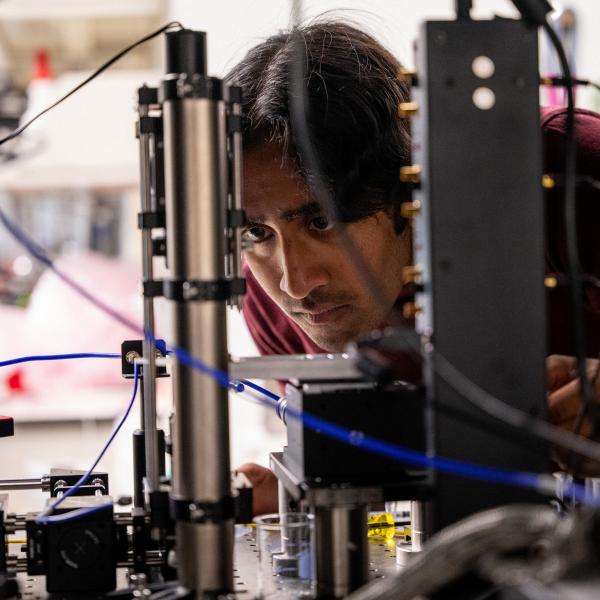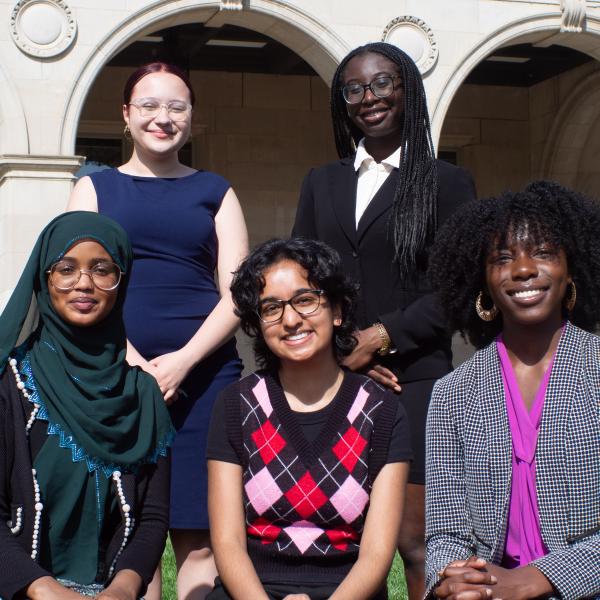Chemistry graduate student Jeremy Ryan won a biomedical research fellowship from the National Institutes of Health.

Jeremy Ryan, a graduate student working with Meredith Jackrel in the Department of Chemistry in Arts & Sciences, won a three-year, $123,090 fellowship from the National Institutes of Health (NIH) for his project titled “Engineering and Evolving Substrate-Specific Hsp104 Variants.” Ryan’s research focuses on the protein misfolding and aggregation that underpins neurodegenerative disorders, such as Parkinson’s disease and amyotrophic lateral sclerosis (ALS).
“When certain proteins clump up in humans, they are no longer active and/or they can block other important processes from occurring,” Ryan explained. “We are interested in a protein from yeast, Hsp104, which can break up similar types of clumped proteins in yeast. I aim to understand more about how Hsp104 works and how we might apply it to dissolve aggregates associated with human disease.”
By understanding how Hsp104 works, Ryan will take an important step toward developing the technology to engineer enhanced Hsp104 variants for use in preventing the protein clumping implicated in ALS and Parkinson’s disease in humans.
“We screened for new Hsp104 variants in yeast model systems of protein aggregation to identify promising new variants and found several with improved properties based on our data in the yeast model systems,” Ryan said. “I am currently working on testing the efficacy of these variants in mammalian cells, and thus far our preliminary results are highly promising. It’s exciting to see the Hsp104 properties we selected for in the simple yet robust yeast model system translate to human cells.”



